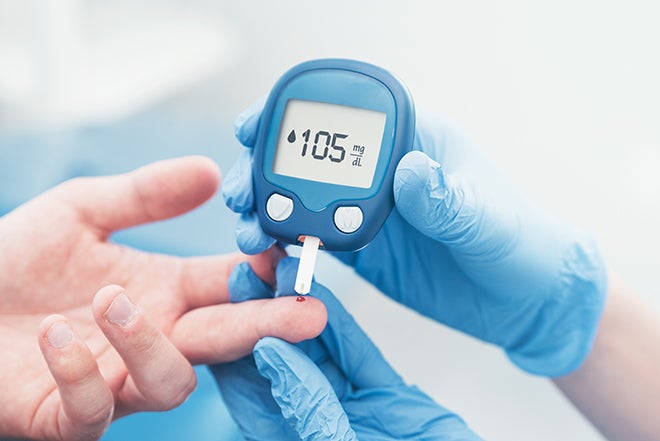Apple preps a blood-sugar app as it continues work on a non-invasive blood glucose sensor

Apple is reportedly testing an app that will help people manage their blood sugar levels. Designed to help those with prediabetes select a healthier diet and engage in a healthier lifestyle, the app is the subject of a report by Bloomberg chief correspondent Mark Gurman. Apple tested the app on certain employees earlier this year, Gurman wrote, citing sources who did not want to be identified because the project is a secret.
While the company is working internally on the app, there are no plans for Apple to release it publicly. The thought here is that Apple will eventually integrate the app into a future blood sugar-related feature such as the long anticipated non-invasive blood glucose sensor for the Apple Watch.
Apple employees involved in the internal testing of the app had to prove they were prediabetic by taking a blood test that showed that they don't currently have the disease but are at risk of getting type 2 diabetes. Those with type 1 diabetes produce little to no insulin as the result of an autoimmune disease that begins to affect the pancreas at a young age. Insulin injections are the main treatment for type 1 diabetes.

A glucometer uses a blood prick placed on a disposable test strip to get diabetics' blood glucose readings. | Image credit-PatientsEngage
Type 2 diabetes is usually contracted from genetics and/or a lifestyle decision. Insulin production is normal at first and then declines. Type 2 diabetes starts when the patient is older and treatment includes lifestyle changes, medication, and insulin. To reiterate, Apple employees involved in testing the app had to show that they were at risk of getting type 2 diabetes. These employees monitored their blood sugar using commercially available devices such as glucometers that require the user to draw blood from their fingers using a sharp tool called a lancet.
The blood is placed on an expensive, disposable test strip that has already been placed in a slot on the glucometer. After the blood is applied to the strip, the glucometer takes a few seconds to reveal the user's blood glucose reading. This number determines how much insulin the diabetic must take before each meal.
Apple has been reportedly working for years on a sensor that would allow an Apple Watch user to get his blood glucose reading without having to obtain a blood sample. And if the feature does make it to the Apple Watch, diabetics would no longer have to deal with the expense and pain of using the current invasive testing before each meal.
Additionally, the Apple Watch's non-invasive blood glucose sensor could warn diabetics when their blood sugar is dangerously low which is a condition known as hypoglycemia and could lead the diabetic to pass out or go into a coma. Drinking a sugar-filled juice or eating a sugar-rich candy bar will bring the diabetic's blood sugar back to a normal level. Apple has supposedly made some progress toward creating the sensor but it is still years away.
Apple's non-invasive blood glucose sensor would use lasers to shoot light into the skin and read the amount of glucose in the users blood. The first iteration of the feature might only warn users if they are prediabetic; subsequent versions will give users their specific blood-sugar readings allowing diabetics to use the feature to compute how much insulin they need to inject before eating.
Right now, the sensor for the feature is too big to fit into a smartwatch as it is about the size of an iPhone. Besides having to make the sensor smaller, Apple has had a problem with overheating.
Apple's use of employees to test the blood-sugar app in development isn't unusual as the company recently used employees to test the new sleep apnea feature on the Apple Watch. The same strategy will be used to help Apple develop a hypertension detection feature for the Apple Watch that will warn wearers of the device when their blood pressure might be running high.










Things that are NOT allowed: